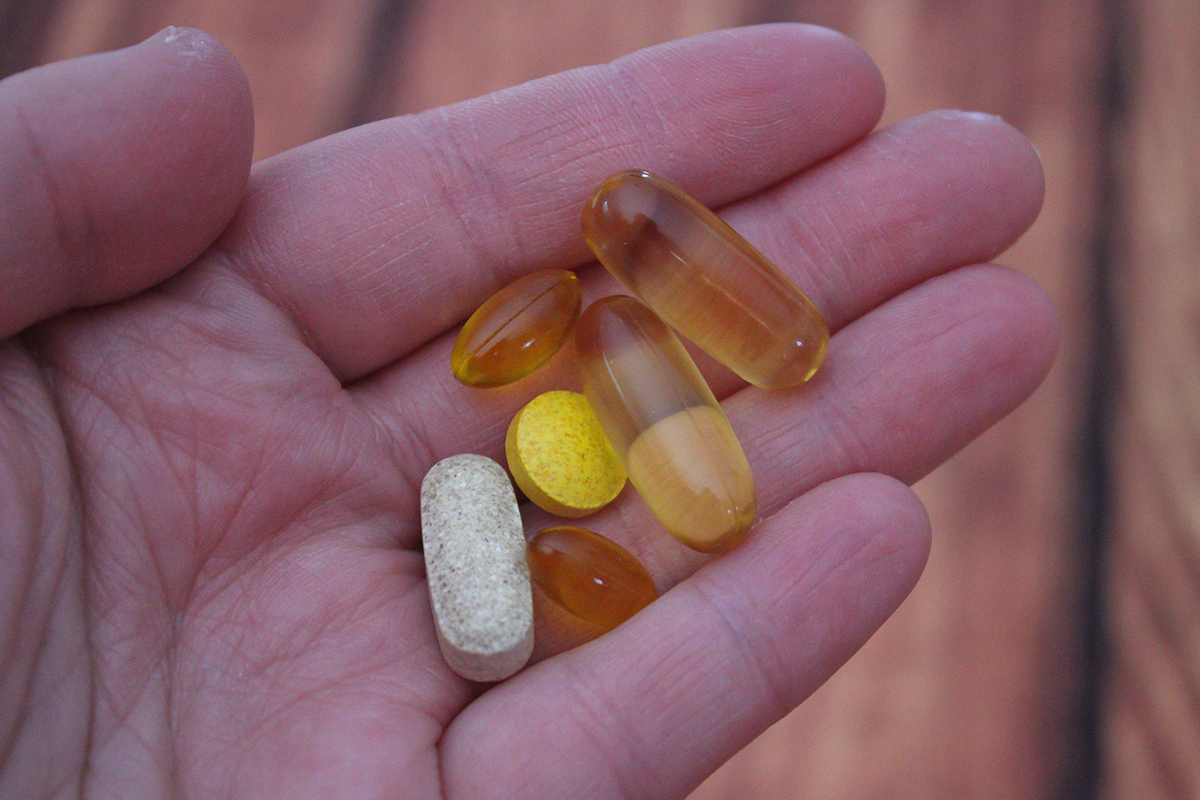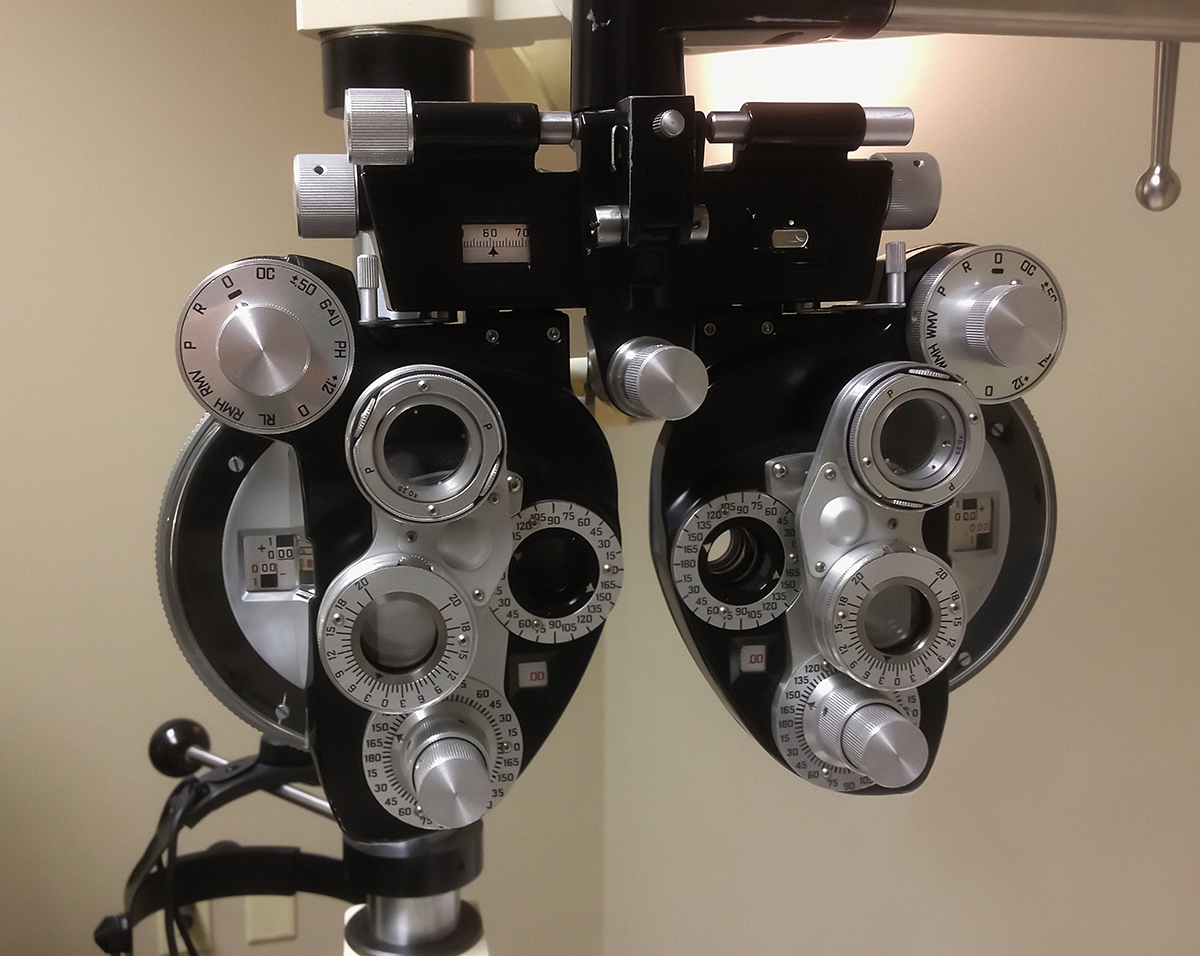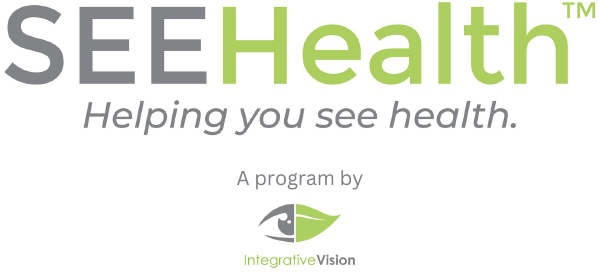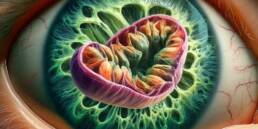Age-related macular degeneration (ARMD or AMD) remains a top cause of vision impairments in people over the age of 60. Ah yes, we’ll be talking about age today, and we hope you feel no shame in the gift of getting older.
Things just don’t work the same after long periods of time, and everything in the body starts with your cells. ARMD changes microscopic functions in your eyes, specifically the retina. The retina encompasses your central vision, allows you to detect light, and needs certain vitamins and nutrients for optimal function.
Changes in the retina cause eyesight trouble and burden daily life — from not being able to read your favorite book to losing your driver’s license. (We know the thought of not driving horrifies you.) Macular degeneration has detrimental vision effects if not properly managed.
Integrative Vision’s here to bring awareness to how your diet and lifestyle can dramatically improve your overall health and eyesight with macular degeneration.
Today we’re diving into the difference between wet versus dry AMD, how supplements and nutrition play a huge role, and — how monitoring this condition can save your sight.

Age-Related Macular Degeneration: Wet vs Dry
The macula, in the center of your retina, naturally deteriorates with age. What causes macular degeneration? Your macula begins to thin and protein buildup deposits called drusen, start to interfere with your central vision. It’s valuable to understand the distinct differences between two forms of AMD. While they go hand in hand, one type causes changes quickly.
1. Dry AMD
The most common form of macular degeneration that over 80% suffer from. “Dry” means tiny blood vessels inside your eye aren’t leaking (more on this later). It happens in three stages: early, intermediate, or advanced/late. As you can imagine, each stage interferes with your vision more.
Dry AMD has a slower progression, so most people in the early stage don’t even notice changes — all the more reason to keep your yearly eye exams. State-of-the-art eye technology allows eye doctors to detect changes before you do!
The intermediate stage can cause changes in your central vision, or you still may not notice a thing. Every person’s symptoms and signs vary.
The late stage causes vision changes and loss, unfortunately. Keep reading to learn more about how to slow down this progression.
2. Wet AMD
The less common form (10-15%) has more sight-threatening risks and the same stages. “Wet” means inside your retina, and specifically the macula, abnormal blood vessels start to grow or leak fluid. This occurs when the dry form develops into the wet condition. That’s right, once you have wet, it’s on top of dry.
Wet AMD requires prompt treatment — otherwise you can experience permanent impacts to your central vision. We won’t sugarcoat this: treatment usually involves injections into your eye. While this isn’t something we do at Integrative Vision, Dr. Gioia gets you into the right specialist fast, if needed.
Listen, we’ve got good news! We know this eye disease scares you. It’s your vision we’re talking about. No one understands better than us, and we like to give our patients alternative options. We know your diet and certain nutrients play a key role in the health of your retina, so let’s dive in!

Your Diet and Supplement Intake With Macular Degeneration Makes a Difference
Scientific research gives us a significant understanding of the importance of key nutrients helping AMD. AREDS are the vitamin supplements recommended for those with AMD. The National Eye Institute offers the largest study to date, Age-Related Eye Disease Study (AREDS). The biggest takeaway?
Taking AREDS supplements reduces the risk of Dry AMD progression — from intermediate to advanced — by 25%!
AREDS includes these key vitamins and nutrients:
| Nutrient | AREDS Formula |
| Vitamin C | 500mg |
| Vitamin E | 400 IU |
| Beta-carotene | 15mg |
| Copper (cupric oxide) | 2mg |
| Lutein | 10mg |
| Zeaxanthin | 2mg |
| Zinc | 80mg |
The combination of supplements effectively slows down the progression of macular degeneration! This gives us powerful information on the impact of wholesome, nutritious meals on our diets as the first way to get these nutrients into our system.
If you’ve been diagnosed with AMD, you’ve hopefully been told about the supplements and that your diet matters for your eye health. We highly recommend eating dark leafy greens, like spinach or kale, on a regular basis. Eggs are another excellent source! These foods are packed with the best beta carotenoids for your eye health.
Eating a nutritious diet specifically for your eye health can be a challenge. If you’re in Fair Haven and Oceanport, Integrative Vision’s here to help with unique eye care services.
Eye exams provide specific details about your eye health and whether or not you should take supplements. Just because your friend’s mom has AMD doesn’t mean you need to start taking AREDS.
Routine Eye Exams and Nutrition Are Your Biggest AMD Defenders
Since AMD can go undetected without routine eye exams, it’s vital for your eyesight — especially as you age. Early screening for this disease isn’t a tough process either.
A specialized camera, called the OCT, captures precise images of your macula and retina. Since AMD can be a slow process and directly impacts your central vision — you want to stay ahead of it. These specialized images are so detailed, Dr. Gioia can see tiny deposits of drusen! Routine eye exams help you keep your eyesight and get a nutritional start if you’re at risk.
Nutritional intervention proves to benefit AMD, and while AREDS are recommended during different stages, you can benefit your eye health every day by choosing wholesome foods. Since we’re so big on nutrition here at Integrative Vision, we offer a Check Palm score reading that measures your antioxidant levels. (How amazing that you can get such specialized care from your optometrist?)

Integrative Vision Provides Elite Eye Exams & Valuable Nutritional Information For You
It can be hard to maintain a healthy diet. That’s one of the reasons Dr. Gioia developed SEEHealthTM, a guided 6-month nutrition program. As a functional medicine eye doctor, she loves empowering her patients to achieve a personalized, balanced, and healthy diet. Not only does your eye health benefit, but your entire body does!
If you’re not looking for that type of commitment, take advantage of our Eye Exam PlusTM. Receive an additional 25 minutes with Dr. Gioia to go over tailored nutritional information based on your eye exam. You’ll learn so much and walk away knowing how better to support your vision with macular degeneration.



